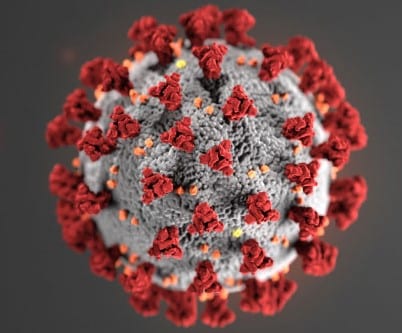![https://commons.wikimedia.org/wiki/File%3AJ.B._Pritzker_speaks_to_the_Evanston_chapter_of_Action_for_a_Better_Tomorrow_IMG_2370_(cropped2).jpg; By SecretName101 (Own work) [CC BY-SA 4.0 (https://creativecommons.org/licenses/by-sa/4.0)], via Wikimedia Commons](https://wp-media.patheos.com/blogs/sites/533/2018/01/J.B._Pritzker_speaks_to_the_Evanston_chapter_of_Action_for_a_Better_Tomorrow_IMG_2370_cropped2.jpg)
That is, get even more Illinoisey, with greater levels of dysfunction?
After all, the governor’s election coming up this fall is generally expected to be billionaire vs. billionaire, though, strictly speaking, Governor Rauner’s net worth is only in the hundreds of millions, while J.B. Pritzker’s net worth is reported to be $3.4 billion. (Yes, there are other Democrats running, but only he is spending heavily on advertising.) And Rauner, let’s face it, hasn’t done a stellar job, and “my ineffectual ability to manage with the Democrats is better than the alternative” can only take him so far, and I suspect that he’ll lose voters who are disgruntled enough by his Medicaid abortion funding to stay home.
So after yet another commercial on TV yesterday, I took a look at Pritzker. What does he have to say for himself, besides, “I am not Trump,” that is? (Yes, his commercials have been focused on how he will fight Donald Trump, and claiming that Rauner is, basically, Trump, and is website does the same.) Mostly, he promises a massive spending spree, funded by increased taxes on the wealthy.
Some specifics from his website:
Pritzker says,
It’s time for Illinois to modernize our tax code – and to do that, we must fairly raise revenue. Right now, Illinois has one of the most regressive tax structures in the nation. Low, middle, and working-class families pay more of their income in taxes than millionaires and billionaires and that’s unacceptable. A progressive tax system built around our modern economy will give us the tools we need to provide our children a top-notch education and expand job training programs across the state.
I’m not sure where the accusation that middle-class families pay more than millionaires and billionaires comes from; Illinois has a flat tax rate, which is written into the constitution and would require a constitutional amendment to change. And Pritzker doesn’t propose any specifics on the tax rates he has in mind, but I could well imagine that a man who was born with a silver spoon in his mouth, and increased his wealth through venture capital, and sees the amount of money in his balance sheet as something that grows to give him greater personal satisfaction but doesn’t really impact this ability to spend money on a day-to-day basis, would be unable to grasp decisions that people who are upper-middle-class or even wealthy but not as mindblowingly rich as he, would make to hold onto their money, including, yes, moving out of state.
Regarding early childhood education, Pritzker proposes to:
- Mandate compulsory schooling starting at age 5. Reportedly 5,000 children are not enrolled in kindergarten; I have a hard time believing these are 5,000 indifferent parents and suspect it’s more likely that these kids are being red-shirted as not ready for kindergarten and better off waiting a year than repeating the grade.
- Increase efforts to put 3 and 4 year olds in state-funded preschool.
- Increase eligibility for the Child Care Assistance Program so that families-of-three receive benefits with incomes of $40,000, and phase out to incomes of $61,000.
- Expand home-visiting programs for families with children under age 3, and encourage them to sign up for text messages about parenting.
- Add more teachers and classrooms (no further details).
Pritzker proposes to fix healthcare with a new healthcare option by allowing all Illinois residents to buy into Medicaid. He’s not the first one to propose this; Nevada also had this on the table but their governor vetoed it. It seems like a magnificient idea: Medicaid is super-cheap so we can lower everyone’s healthcare costs by allowing them to buy it. But the reason Medicaid is super-cheap is because of low reimbursement rates, which doctors are unlikely to accept if too many of their patients are on Medicaid, and, as it is, one reads often enough about Medicaid patients having difficulty finding practitioners who accept them as patients.
He plans to raise wages by “protect[ing] collective bargaining rights” by opposing right-to-work legislation (which, let’s face it, never had a chance in Illinois anyway) and “protect[ing] fair share agreements” (in which non-union employees have to pay unions dues because it represents the “cost” of their collective bargaining) and says he will “be a good faith partner for labor unions and workers.” In other words, we’d be back to Pat Quinn-style generous agreements with state labor unions. He plans to raise the minimum wage to $15. He promises greater penalties and more vigilant enforcement towards companies that violate equal pay laws or engage in worker misclassification or wage theft. He promises boosts in prevailing wages, that is, pay for construction workers on state contracts, and in Project Labor Agreements.
And he plans to grow jobs with new infrastructure spending, as well as funding for high-speed internet in rural communities. He proposes to expand Small Business Development Centers and to “expand availability of microloans to increase access to capital for small businesses” though it’s not clear if the money comes from the state of if he just intends to pressure banks to increase their loans. He aims to “empower community colleges as hubs of economic growth, workforce training, and innovation” and he will “pursue federal dollars, create public-private partnerships, and pursue private investments in technology and innovation.” He will “support university-based start-ups” and will “expand youth apprenticeship programs by promoting partnerships between high schools and trades unions and encouraging companies to establish multi-year commitments for apprenticeship programs.” All of which sounds great but seems very much oriented towards the state picking winning businesses to support. (At least he’s not promising to ramp up the tax breaks being offered to major corporations.)
As to Illinois’ public universities, he implies greater state funding by saying that he’ll make them more affordable, and will spend more money on research funding at those universities, but with no particular details.
As to social issues, Pritzker proposes to legalize marijuana, and to “resist Trump” by “stand[ing] up against his bigoted policies and racist rhetoric.” He proposes providing healthcare and financial aid for illegal immigrants. But he doesn’t really have much else to say — and to a fair extent, he doesn’t really need to, especially since some of the claims Pritzker made, that Rauner would veto HB40 (Medicaid abortion funding) and that it was up to Pritzker to sign the Illinois TRUST Act (a illegal immigrant sanctuary-type bill), are out of date, as Rauner has signed both of these.
So there it is: Pritzker is not presenting himself as a moderate to appeal to disaffected Rauner voters; instead, we’ll be getting a choice between two very different sets of policies.
Image: https://commons.wikimedia.org/wiki/File%3AJ.B._Pritzker_speaks_to_the_Evanston_chapter_of_Action_for_a_Better_Tomorrow_IMG_2370_(cropped2).jpg; By SecretName101 (Own work) [CC BY-SA 4.0 (https://creativecommons.org/licenses/by-sa/4.0)], via Wikimedia Commons (the only available public domain image)











